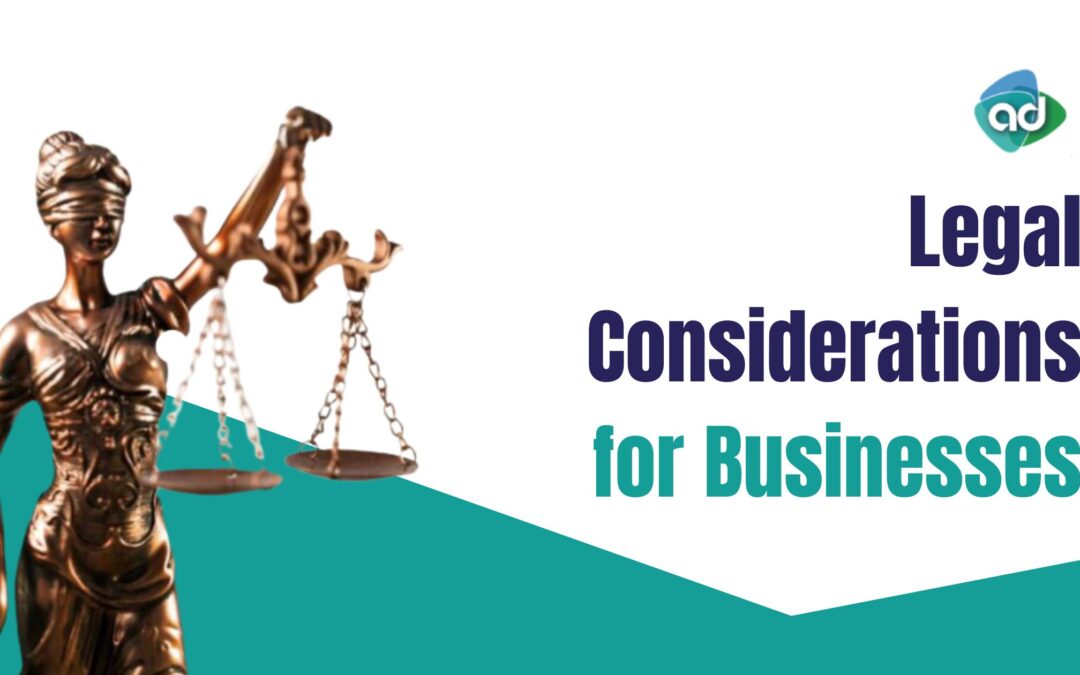As technology continues to advance rapidly, businesses are embracing these advancements to improve efficiency, streamline operations, and stay ahead of their competition. However, along with the benefits come various legal considerations that businesses must keep in mind to operate ethically and avoid potential legal repercussions. In this blog post, we will explore some of the key legal considerations businesses should be aware of in the age of technology.
Data Privacy and Security
With the rise of technology, businesses now have access to vast amounts of data, ranging from customer information to proprietary data. While this data can be valuable for businesses in terms of understanding their customers and making data-driven decisions, it also comes with a responsibility to protect the privacy and security of this information.
To protect consumer data, businesses must have strict policies and procedures, including data encryption, regular security updates, and secure storage. Failure to do so can result in data breaches, damage a company’s reputation, and lead to legal and financial consequences. In fact, with legislation such as the General Data Protection Regulation (GDPR) in Europe and the California Consumer Privacy Act (CCPA) in the United States, businesses are now legally required to protect consumer data and inform them of any data breaches.
Intellectual Property Rights
The advancement of technology has made it easier for businesses to create and protect their intellectual property rights. However, it has also made it easier for others to infringe upon these rights. As such, companies must know their intellectual property rights and take necessary steps to protect them.
One key aspect of protecting intellectual property is through copyright laws. Businesses must ensure that any content they create, such as product designs or marketing material, is appropriately copyrighted to prevent others from using it without permission. Businesses must also be cautious when using copyrighted material from others, such as images or music, to avoid potential legal issues.
Cybersecurity and Cybercrimes
As businesses increasingly rely on technology for their operations, they become more vulnerable to cybercrimes. Cybersecurity breaches, such as hacking, phishing, and malware attacks, can have severe consequences for businesses, including financial loss and damage to their reputation.
To protect against cybercrimes, businesses must have robust cybersecurity measures, such as firewalls, antivirus software, and regular security checks. Employee training on identifying and preventing cyber threats can also go a long way in protecting a business from potential cyber-attacks.
E-Commerce and Online Transactions
Technology has also revolutionised the way businesses conduct transactions through the rise of e-commerce. While this has made it easier for companies to reach a wider audience and conduct sales online, it also comes with legal considerations that must be considered.
Businesses must ensure that they comply with laws and regulations related to e-commerce, such as consumer protection laws, data privacy laws, and taxation laws. Failure to comply with these laws can lead to legal consequences and damage a business’s reputation and trustworthiness among customers.
Employment Laws
The use of technology has also had an impact on the employment landscape. Businesses can now access various tools and software to increase productivity and streamline processes. However, this can also lead to the displacement of jobs and changes in job requirements.
Businesses must be aware of employment laws and regulations related to technology, such as data privacy laws that protect employee information and laws that govern the use of technology in the workplace. Businesses must also be mindful of using technology to recruit, hire, and manage employees to avoid potential discrimination or privacy issues.
Conclusion
In this age of technology, businesses must stay informed of the various legal considerations that come with using technology in their operations. From data privacy and security to intellectual property rights and e-commerce laws, businesses must prioritise ethical and legal practices to protect their reputation and avoid potential legal repercussions. Keeping up with technological developments and staying in compliance with laws and regulations will ensure that businesses can continue to harness the benefits of technology while also operating ethically and responsibly.
